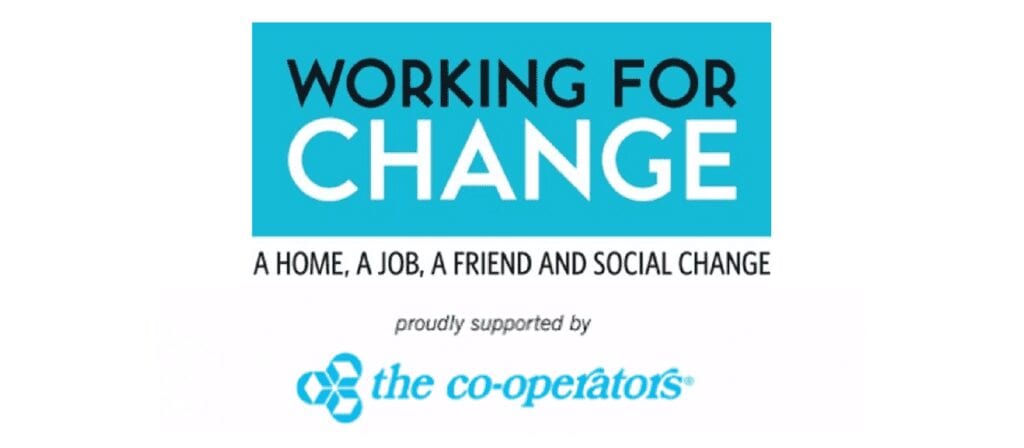Canadian member of the International Cooperative and Mutual Insurance Federation (ICMIF), The Co-operators, last month announced a redesign of its employee mental health benefits, increasing coverage for employees to CAD $5,000 per year per family member and also expanding the number of eligible practitioners beyond psychologists and social workers to include family therapists, clinical counsellors and psychotherapists.
“The facts are compelling,” explains Rob Wesseling, President and CEO, The Co-operators. “We know that one in five Canadians will experience a psychological health problem or illness in any given year, making mental health the number one cause of disability in Canada. As an employer and group benefits provider, we see first-hand the impact mental illness is having on Canadians. The resulting absenteeism, disability costs and loss of productivity impacts our economy by as much as CAD $51 billion [source: Centre for Addiction and Mental Health, Mental Health and Addiction: Facts and Statistics 2015] per year. Supporting mental health is the right thing to do and The Co-operators is committed to providing innovative access to customisable care, so that our employees have access to the care they need, where and when they need it as they cope with these health concerns.”
Last year, The Co-operators began a company-wide mental health initiative focused on its employees, clients and the communities it serves. In addition to the increased mental health benefits, employees also have an enhanced bereavement policy that allows up to 20 days of paid time off following the loss of a spouse or child. The company is researching innovative mental health solutions, which include internet-delivered cognitive behavioural therapy (ICBT), mental health second opinion consultation services and has partnered with the University of Regina on a study to better understand mental health disclosure in the workplace (see below for more background information about the study).
The company has also provided community support for mental health, through partnerships with organisations including Kids Help Phone, a Canadian 24-hour, bilingual and anonymous phone counselling, web counselling and referral service for children and youth offered throughout the country. Other partners include Physical and Health Education (PHE) Canada, a professional organisation for physical and health educators, and the Joseph Brant Hospital. The aim is that by partnering with community organisations whose programmes help individuals lead healthy, safe and secure lives this will, in turn, help to create more resilient communities.
As part of its commitment to building stronger mental health support networks in Canadian communities and acting as a catalyst for change on behalf of those whose mental health is being underserved The Co-operators has also been working with the Canadian Mental Health Association (CMHA). The CMHA is a national, voluntary organisation that promotes the mental health of all and supports the resilience and recovery of people experiencing mental illness.
The organisation’s focus on employee mental health – supported by an extensive internal communication and education campaign – earned The Co-operators a gold certification from Excellence Canada in the category of Mental Health at Work. The certification recognizes organisations for successfully implementing the National Standard of Canada for Psychological Health and Safety in the Workplace. The Co-operators’s mental-health programme, including an online forum for employees, was central to its win in the category at Benefits Canada’s 2017 Workplace Benefits Awards in Toronto in October last year.
“We have always supported health and wellness at The Co-operators, but our increased focus on mental health has helped reduce stigma and create a more open and safe workplace culture,” explains Bernie Mitchell, SVP, human resources, The Co-operators. “Our goal is to ensure that employees feel comfortable talking about their mental health in the same way they would their physical wellbeing. We want the workplace to be the pathway to positive mental health.”
Background information on the study in conjunction with the University of Regina
Disclosing Mental Health in the Workplace
Research Findings – The Co-operators in partnership with the University of Regina
A 2017 research study, undertaken by the University of Regina in partnership with The Co-operators, focused on Mental Health Disclosure in the Workplace. The study* resulted in some important learnings to better understand the factors influencing disclosure of mental health concerns in the workplace leading to recommendations for encouraging disclosure. Employees and leaders participated to understand the issue from both perspectives.
Benefits of disclosure
It’s estimated that only 33% of those with a mental health condition will access services and treatment. Disclosure of mental health concerns is critical in positively impacting this trend and can benefit individuals in many ways. Disclosure allows for social supports, creation of workplace accommodations, reduction of public and self-stigma and improved access to care. We know that use of mental health services and supports increases when individuals disclose their mental health concerns.
It’s also possible for negative stereotypes and stigma to be reduced through disclosure. Opportunities to interact with individuals with a mental health concern can be an important part of reducing prejudice and stigma. By disclosing, employees with mental health conditions can become role models for others, reducing isolation and self-stigma.
If employees believe that a co-worker with a mental health condition is treated equitably after disclosing, they are more likely to self-disclose and seek employer assistance for their own mental health concerns. The study found that disclosure was also a pre-condition to receiving workplace accommodations. Workplace accommodations are important to help employees with mental health concerns maintain employment and thrive at work. If employers intervene early enough with these accommodations, there is an opportunity to reduce longer term disability leaves.
Perceptions of disclosure
There are many factors that impact how disclosure in the workplace is perceived including work performance, symptoms, education, lived experience with mental health, gender, cultural identity, employer reactions, stigma and advocacy. Stigma can be a real concern, with individuals fearing being perceived as weak, unable to handle the stress of the job, lazy, malingering to avoid work, or fear that disclosure would have a negative impact on job stability or career advancement.
What can employers do to foster a safe environment encouraging disclosure?
- Ensure mental health has the same importance in the workplace as physical health. Adopt mission statements that outline the organisation’s dedication to mental health.
- Educate leaders on mental health symptoms, treatments and the impacts of both on workplace behaviour and work performance
- Build leader’s confidence in discussing mental health concerns with staff, particularly in situations where mental health is affecting performance
- Encourage education for all staff from a lived experience perspective. Seek out advocates who can share their own positive experiences with disclosure, either publicly or at an individual level.
- Broaden knowledge on the range of workplace accommodations available. Ensure employees feel valued and empowered and are not assigned menial responsibilities as an accommodation.
- Ensure that initial discussions on performance concerns are conducted with empathy and, if appropriate, address the potential impact of mental health symptoms on performance
- Acknowledge and address stressful working conditions and workplace triggers with staff early and often through frequent check in’s
- Encourage co-worker and team support for employees struggling with a mental health concern and ensure appropriate support is in place for these teams
For most, disclosure only occurs in trusted relationships where they feel supported and understood. Leadership in eliminating stigma is essential to create this trusting environment.
* Study conducted by Y. Nichole Faller, (Hons.) MA, University of Regina, in partnership with The Co-operators 2017






